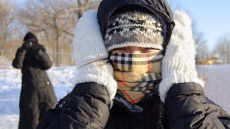Increasing vitamin D intake could spare 23,000 Canadians premature deaths annually and save Canada $12.5 billion in healthcare spending and associated costs, says a new study on vitamin D deficiency.
The study, published by Dermato-Endocrinology examines the devastating medical and financial toll Canadians suffer because they don’t get enough vitamin D. “This research really should act as a wake-up call for policy-makers in Canada,” said study co-author Dr. William Grant, a researcher with the Sunlight, Nutrition and Health Research Center in San Francisco, CA. “Thousands of lives and billions of dollars could be saved by bringing in policy changes that promote messaging around safe sun exposure, vitamin D supplement use and eating foods fortified with vitamin D.”
Vitamin D levels in the blood are measured in nanomoles per litre (nmol/L) using what’s called the 25-hydroxy vitamin D blood test (25 (OH)D). In Canada, doctor lab tests consider the normal range to be between 75 to 150 nmol/L or higher in some provinces. The study determined Canadians have a mean level of vitamin D which measures 61 nmol/L. That represents a drop from a level of 67 nmol/L in 2010. Health Canada’s guidelines recommend maintaining vitamin D levels of at least 50 nmol/L. However, researchers estimated that if Canadians could raise their mean level of vitamin D to at least 100 nmol/L, it would prevent approximately 23,000 premature deaths and save $12.5 billion annually in direct healthcare and related costs.
Only approximately 10% of Canadians currently have vitamin D levels that exceed 100 nmol/L, while one third of Canadians don’t even meet Health Canada’s minimum recommended target of 50 nmol/L. The diseases which were estimated to be reduced through higher vitamin D levels in the study included: cancer, cardiovascular disease, dementia, diabetes, multiple sclerosis, osteoporosis (hip fractures), and respiratory infections.
“Safe sun exposure is the main source for our bodies to absorb UVB rays and generate vitamin D,” said study co-author Dr. Gerry Schwalfenberg, a scientific advisor to the Vitamin D Society and an Assistant Clinical Professor at the University of Alberta. “Unfortunately, many Canadians are staying out of the sun altogether to avoid health risks associated with burning exposure. The reality is that they could be doing themselves more harm than good by not getting moderate amounts of sun to boost vitamin D.”
Even if they’re not deliberately dodging the sun, it can be difficult for Canadians to tap into the positive impact of UVB rays. Due to Canada’s northern latitude, the sun’s rays are not strong enough from November to May for Canadians to generate vitamin D naturally. For vitamin D intake during winter months, the Vitamin D Society recommends Canadians use artificial UVB sources or supplements.
“November is Vitamin D Awareness Month. A time when we begin the vitamin D winter where the sun is not strong enough to produce vitamin D through our skin. All Canadians should assess and improve their vitamin D intake to ensure they achieve optimal blood levels of between 100-150 nmol/L,” said Perry Holman, Executive Director of the Vitamin D Society.





